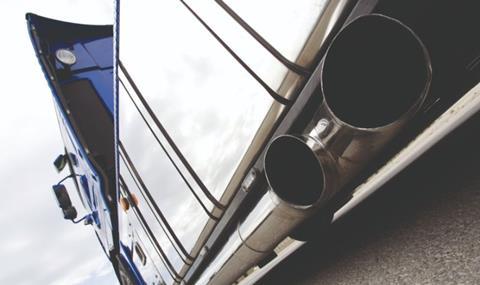
Hauliers are calling on the Welsh government not to follow England in creating “expensive” and “inflexible” clean air zones.
The RHA made the call this week as officials from the National Assembly of Wales launched an inquiry into air quality.
Chris Ashley, RHA environment and regulation policy chief is warning the Welsh Government against adopting similar “flawed” CAZ plans to England’s, which he says are forcing operators to upgrade trucks prematurely and putting firms out of business.
Responding to the Assembly’s air quality plans consultation, Ashley said that the Welsh Government should learn from the experience of England, where the Joint Air Quality Unit (JAQU) had devised what he said was as an “expensive” and “inflexible” clean air zone framework, with hauliers facing up to £100 daily charges. In six out of ten cases, local authorities have no plans to impose charges on non-compliant cars.
Ashley called on officials to examine all non-charging options to reduce NOx emissions, as set out in the Welsh Government’s Clean Air Zone framework for Wales (2018).
These include offering training courses on eco-driving, enforcing anti-idling measures, optimising traffic flow and designing effective smart car-sharing schemes.
Read more
- RHA slams CAZ national charging plans as “anti-business” and “childish”
- Hauliers will bear the lion’s share of the cost of Bristol CAZ, FTA warns
- Look beyond the “short-lived” gains that CAZ offer, FTA tells councils
Ashley said: “The Welsh Government has an opportunity to design and champion a clean air zone framework which works for all.”
In the same week RHA has criticised Bradford Council’s plans to charge non-Euro 6 trucks £50 to enter its clean air zone from October next year.
Under the plans, buses, coaches and taxis will also face charges but private cars are exempted.
Ashley slammed the plans saying that they disproportionately target trucks despite the sector slashing its nitrogen oxide emissions by 60% since 2013.
The RHA is calling on Defra and the DfT to review clean air policies in England. It wants a framework which targets older, more polluting vehicles across all types, allowing for different charging levels according to age, which it believes would be fairer on operators, avoiding the early replacement of Euro V trucks which have an average 12-year life cycle.
“Poor air quality is a serious environmental risk to public health but the regulatory framework must support the investment life cycle that hauliers make,” Ashley added.














